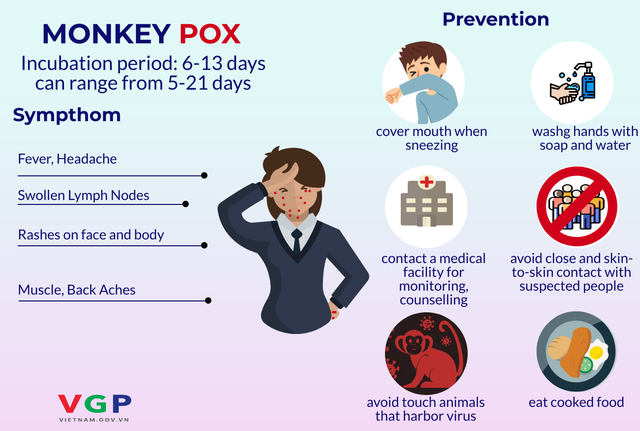Localities urged to ramp up surveillance as monkeypox spreads to 78 countries, territories
VGP – The Ministry of Health on Friday urged localities to ramp up surveillance for early detection of monkeypox infections as the disease has spread to at least 78 countries and territories with more than 21,000 infection cases.
Specifically, monkeypox surveillance must be strengthened at border gates and clinics.
Medical etablishments needs to step up training on treatment for persons infected with monkeypox.
Although no cases of monkeypox has been recorded in Viet Nam, the risk of this disease entering the country is very high, according to experts.
The ministry has called on people to cover nose and mouth when coughing or sneezing, and wash hands regularly with soap or alcohol-based hand sanitiser.
People with an acute rash of unknown cause, accompanied by one or more suspected symptoms, should contact a medical facility for monitoring and counselling.
People are also advised to avoid close and skin-to-skin contact with people with monkeypox, to not touch the rash or scabs of a person with monkeypox and not to share utensils, bedding, towels or clothing with them.
People with travel history to countries reporting monkeypox outbreaks should avoid contact with mammals (dead or alive) such as rodents and marsupials because they may contain the monkeypox virus. When returning to Viet Nam, the they need to make health declarations to a local health establishment for consultancy.
On July 23, WHO Director-General Tedros Adhanom Ghebreyesus declared monkeypox a global public health emergency due to its rapid transmission rate and the risk of its spread further to other countries.

